Asset Alliance Group plans to double Bus and Coach business unit revenues to GBP1bn in the next three years
By Luke Willetts - 12th March 2024

Martyn Bellis, Commercial Director of Bus & Coach at
UK – With the news that UK commercial vehicle contract hire and leasing specialist, Asset Alliance Group (AAG), is heading into the bus and coach rental market, T&BB thought it wise to set up an interview with Martyn Bellis, Commercial Director of Bus & Coach at AAG, to get a better understanding of the company’s strategy to double its turnover in bus and coach from GBP500m currently to GBP1bn in the next three years!
With more than 5,000 assets (trucks, buses and trailers) under management, AAG’s core strength is understanding the UK CV market. The company offers operators a choice of several finance options such as higher purchase (HP), lease, full purchase agreements as well as contract hire and rental agreements, together with maintenance and service contracts. Customers can choose from diesel, hybrid and electric drive vehicles together with one or several of the aforementioned finance options.
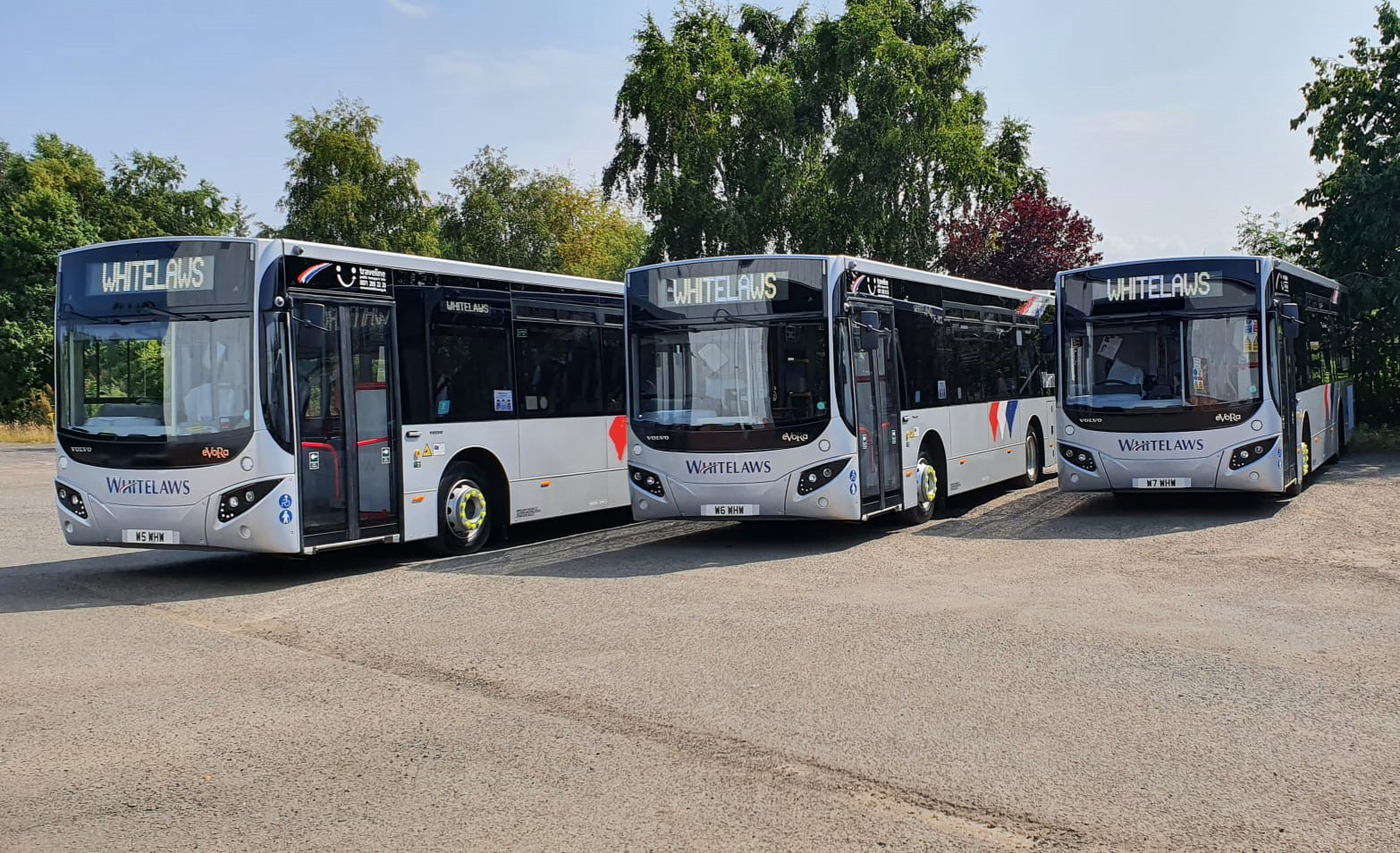
Asset Alliance Group has new buses in stock and on order from a wide range of UK manufacturers to meet the differing needs of customers across the UK.
The Bus Rental Business Model
Asset Alliance Group was established in 2012 and in 2021, was acquired by the Arbuthnot Latham Banking Group. Bellis referred to AAG as “bank owned”, giving it the spending power to invest in a ‘new bus fleet’ to kickstart its rental offering, which is unlike many of AAG’s competitors that need to borrow the capital to buy the vehicles. Having access to capital also provides the advantage of added flexibility to respond to market trends: Just last year, for example, the company’s truck division placed a GBP 160 million mixed order of new DAF electric and diesel trucks, Bellis stated.
Bus rental agreements are based on a fixed charge or payment per month for the vehicle with a minimum rental period of a year; however, this timeframe depends on stock availability. Shorter-term leases are available if stock availability permits, but the monthly rate will effectively go up. AAG said, “we are committed to supporting all contract sizes, and supporting customers for whom running a bus fleet is not part of their core business.”
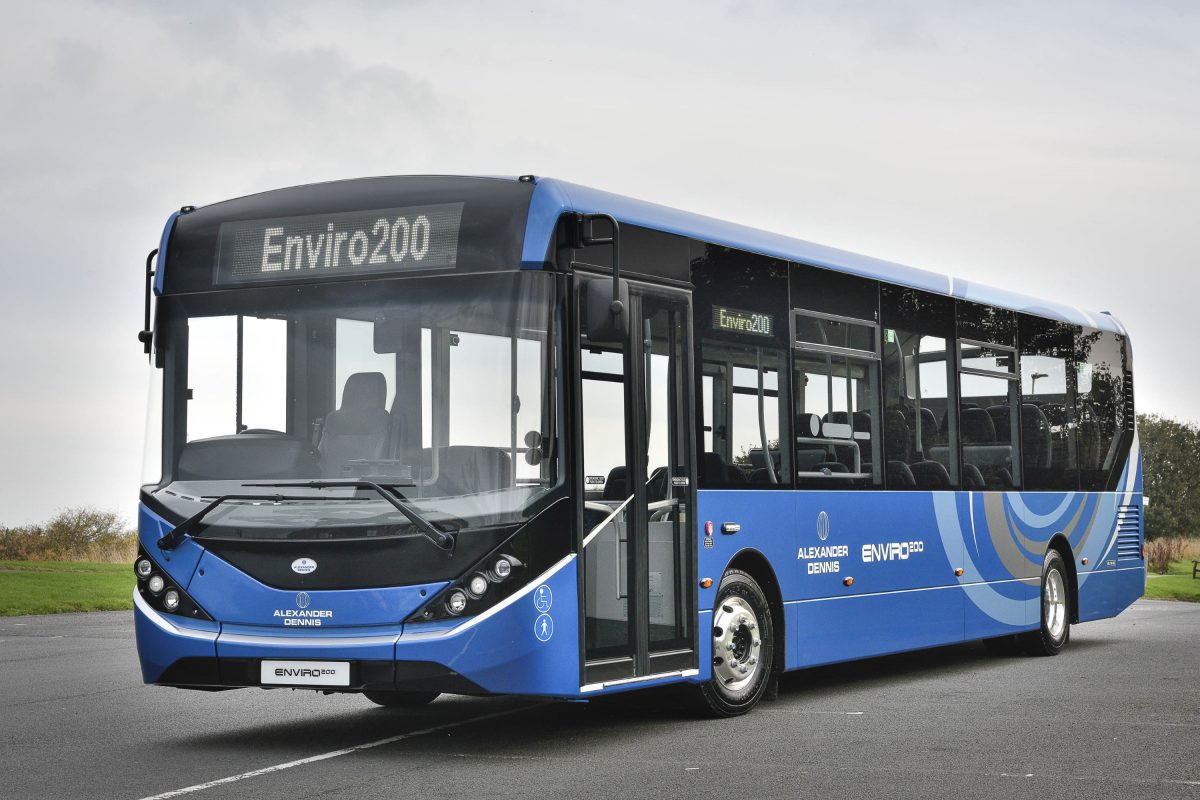
Asset Alliance Group has invested in a fleet of top-of-the-range vehicles to kickstart its new rental offering to UK operators.
Bellis said:
It’s an exciting time for our team. We will have a broad range of products available, everything from smaller minibuses up to single-deck and double-deck buses. We have new buses in stock and on order from a wide range of UK manufacturers to meet the differing needs of customers across the UK. And we can source all vehicle types from new to used, from standard builds to custom design, and from diesel power to hybrid and electric drives. We are here for everyone. The finance options cover everything from single assets to large multiple-vehicle contracts. Our rental service will free customers from extended commitments, providing them with complete flexibility to meet their business requirements.
Plans for the coach market
AAG currently offers finance for a variety of coaches with plans to offer rentals in 2025. However, Bellis said the 2024 timeline has been delayed due to the limited amount of new coach stock currently in the market. The delay comes as Volvo Buses has been winding down its bus and coach body on chassis operations in Wrocław, Poland and moving its body-building operation to Sunsundegui SA, of Alsasua in Spain. This has limited Volvo’s stock of both its 9400 and 9700 coaches for the UK and other markets.
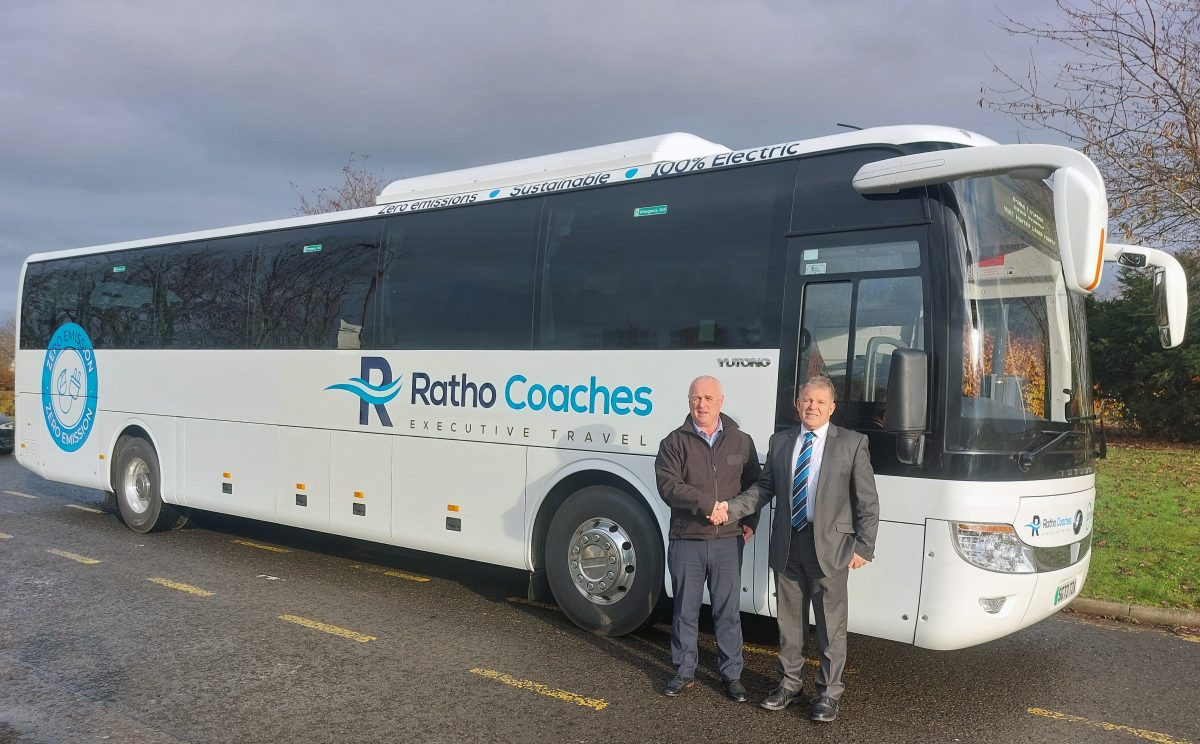
Ratho Coaches has become the first operator in the central belt of Scotland to put an electric coach into service, after taking delivery of a new Yutong TCe12 from Asset Alliance Group in January. Michael Gillen, Business Development Manager, Asset Alliance Group (left), hands over the new electric coach to Charles McIntosh, Co-Owner and Director at Ratho Coaches.
Plans for growth
In 2023, AAG’s Bus and Coach division exceeded GBP 500 million, in funding over 2,500 vehicles in this segment. Bellis aims to hit one billion pounds (GBP1bn) within the next three years. Actioning its strategic plan will get them to this milestone, said Bellis.
The company is expanding its business with Transport for London (TFL) as it continues to lease buses into the capital, but it also plans to take advantage of growth in other parts of the United Kingdom. Bellis confirmed that to achieve this, AAG is making a concerted effort to increase its presence across the UK by deploying more sales teams and service managers into different regions and market segments to speak with potential customers and operators. AAG also plans to have a large presence at this year’s Euro Bus Expo taking place from 12 – 14 November at the NEC Birmingham.
Other strategies to thicken AAG’s bottom line, include the refurbishment of old buses that come back after an extended lease. There may be demand in the future for a diesel or hybrid bus to be completely converted to electric. This could be a great opportunity for refurbishment and retrofit companies, such as Equipmake and Kleanbus, which specialise in this area in the UK.
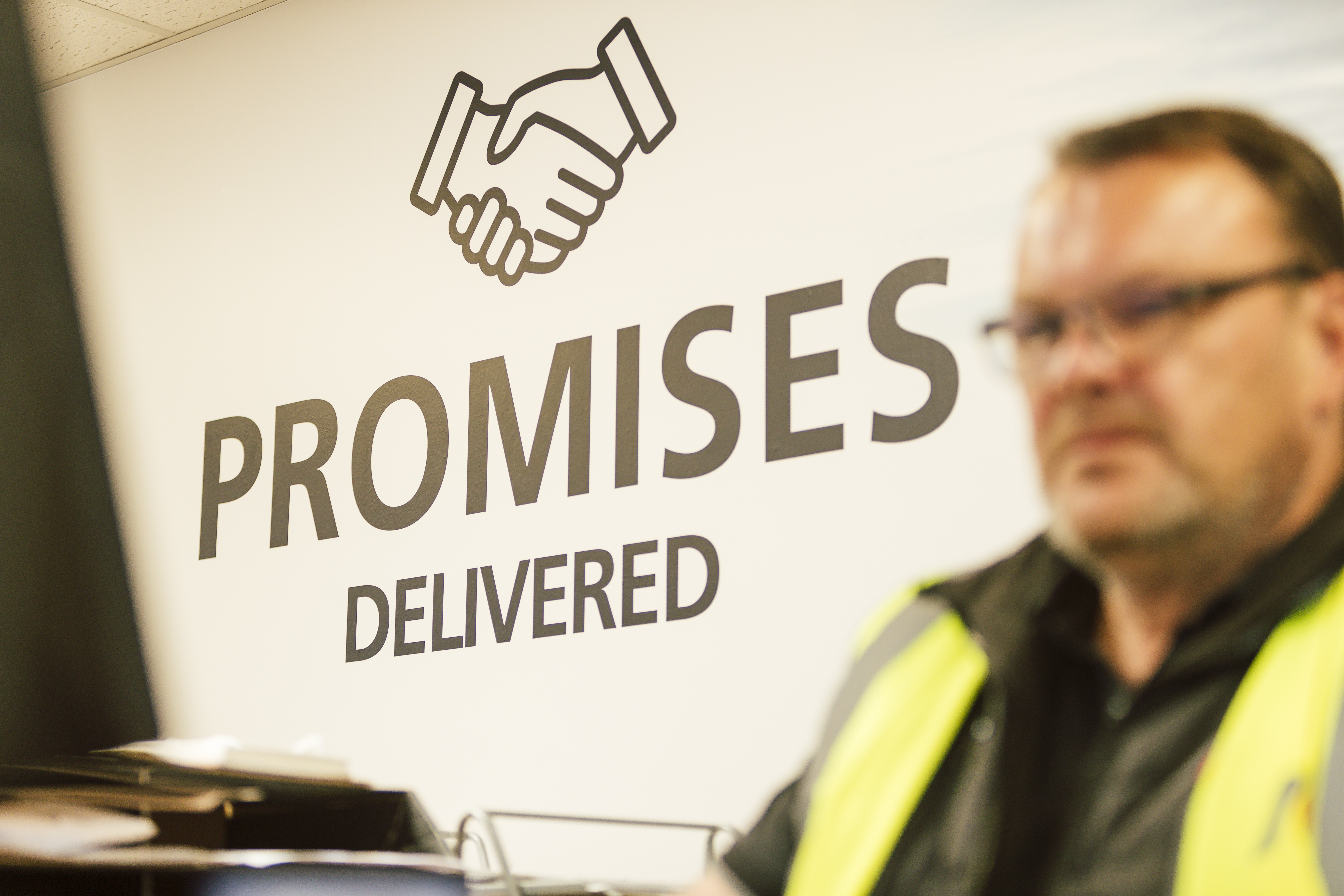
Asset Alliance Group prides itself on its high levels of customer service.
Strategic appointments
The introduction of the bus and coach rental concept comes a few months after Paul Fairbanks and Michael Gillen joined Asset Alliance Group as Business Development Managers to support the ambitions of this growing segment. The company continued to make certain strategic hires to aid in growth.
Last year AAG restructured its asset finance & leasing department, appointing Michael Bycroft as its new Managing Director to head up this department. Martyn Bellis filled the Bus & Coach role at AAG and in January this year, the company appointed Robert Gwynn as its new Strategic Development Manager. An experienced transport policy and public affairs specialist, Gwynn joins the company with the role of getting more alternatively fuelled vehicles, including buses, across its fleet.
Willie Paterson, Chief Executive of Asset Alliance Group, said: “This is a huge investment for the business and a major innovation for our rapidly growing Bus and Coach division. We are confident it will be widely welcomed by operators of all sizes. As we strive to become the number one bus and coach funder and supplier in the UK, this is a significant step in the right direction.”
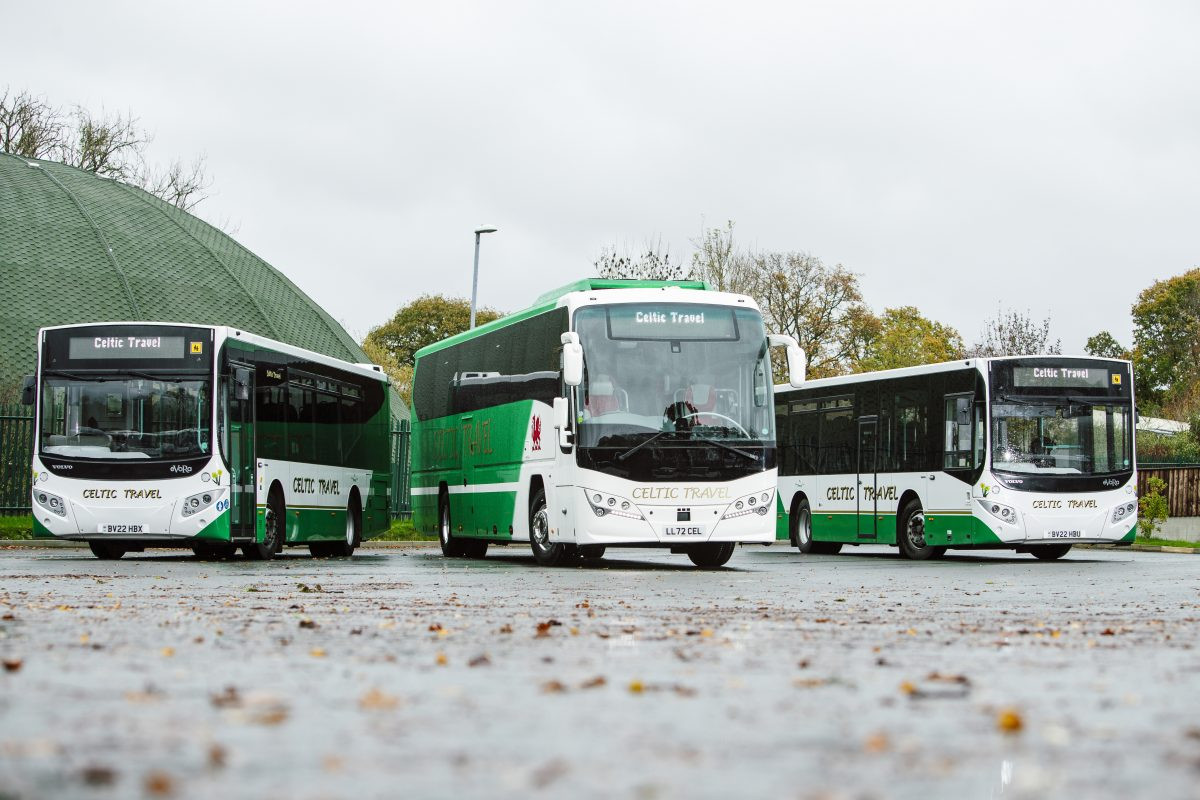
Asset Alliance Group last year helped Celtic Travel, one of the largest independent coach operators in mid-Wales, to finance a further three new vehicles.
Market trends
Once the topic of electrification came up, Bellis confirmed that many operators are apprehensive about investing in electric vehicle fleets without understanding what their overall cost savings would be over a certain timeframe or in other words what is the Total Cost of Ownership (TCO) of an electric bus or coach. Traditionally, this has been curbed with government subsidies such as the ZEBRA Scheme; a programme that was launched in 2021 to allow local transport authorities to bid for funding for zero-emission buses and supporting infrastructure. According to the UK government, the first round of ZEBRA funding put 1,300 new zero-emission buses on the road.
Whilst AAG already finances electric vehicles in London, Bellis said that it was slightly different outside of London due to the lack of electric charging infrastructure and set routes. This perhaps gives an advantage to larger operators (First Bus or Stage Coach etc) rather than the smaller ones, which have the capital to invest in the necessary charging infrastructure and not have to wait for government subsidies or assistance. While AAG can provide the finance for the necessary charging infrastructure, Bellis pointed out that the company does not employ engineers directly to go out and install charging infrastructure. However, it could contract out to several established infrastructure installation partners to do the work, such as Zenobē Energy Ltd.
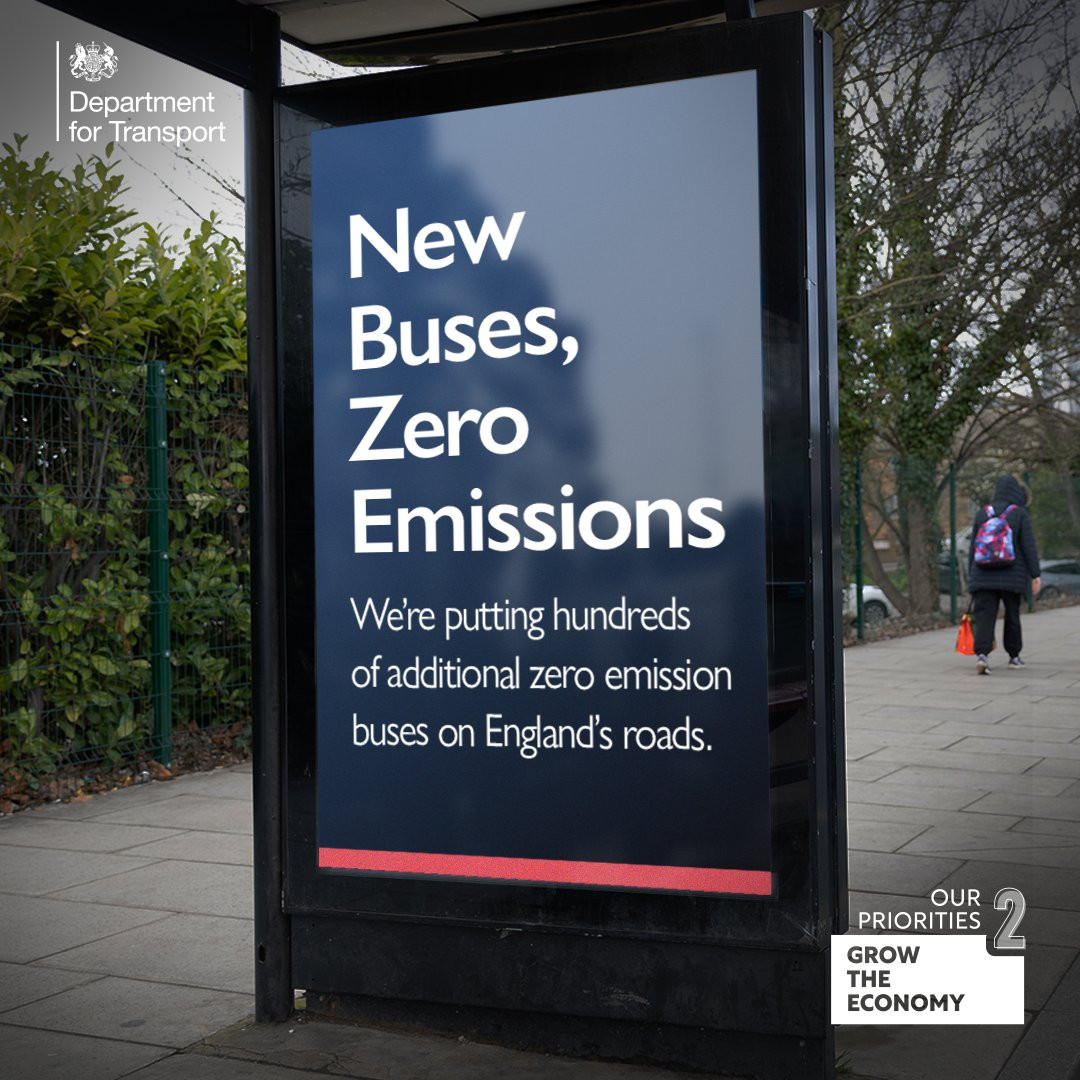
The ZEBRA Scheme
Price of electric buses
Another interesting topic Bellis spoke about was the price of electric buses. Market economics dictates that as the supply of electric buses increase, the price should come down. However, this simply hasn’t happened, according to Bellis. Why? Because as operators want more range from the batteries, higher density battery packs are required, this has meant the cost of a battery pack has largely remained static rather than reducing as the demand for BEV has increased. The knock-on effect of this has meant we haven’t seen the reduction in the overall vehicle prices as Bellis explained, largely because batteries make up the majority (as much as 50%) of the cost of an electric bus.
More UK government subsidies?
Bellis said that the gap between diesel and full electrification in terms of the cost of the vehicle is still too wide. He added that without subsidies, the implementation of electric buses on UK roads would be halted. Otherwise, he continued, the only other way to make electric buses economically viable without subsidies would be to increase fares, which takes away transport for those who need it most!
Last year, UK transport secretary, Mark Harper, announced that the government had allocated an additional GBP 129 million in funding to aid local authorities in the acquisition of zero-emission buses. The funding is to be allocated and distributed by the Department of Transport under the UK government’s Zero Emission Buses Regional Area (ZEBRA, now ZEBRA 2) Scheme. This expansion of the fund enables more remote parts of the UK to benefit from decarbonised public transport, as the government has prioritised the first GBP 25 million of electric bus funding for rural communities and for those local authorities that did not receive money in the previous round of ZEBRA funding. This brings the total investment in new zero-emission buses in the UK to almost GBP 500 million.
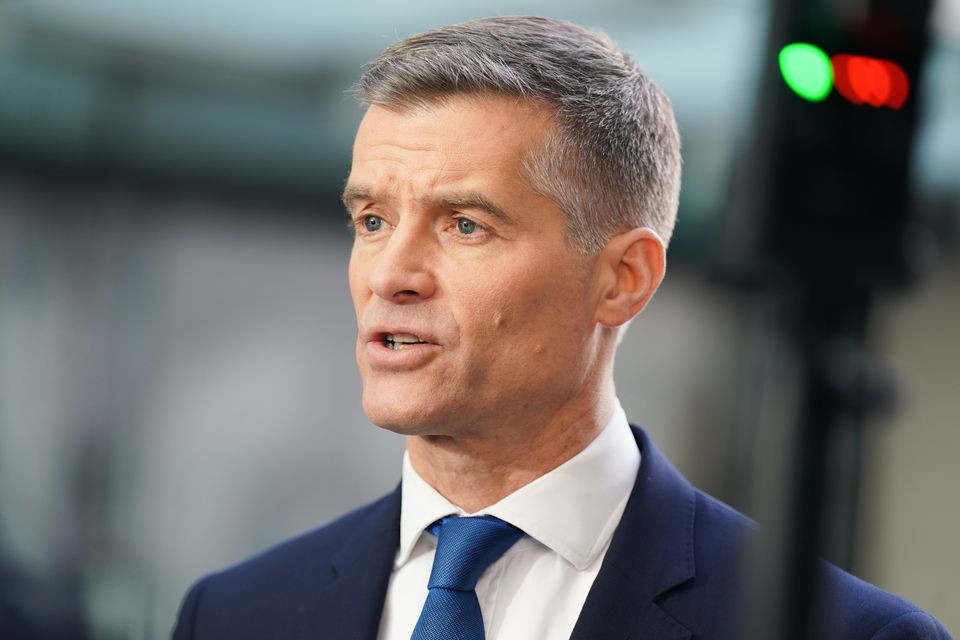
UK transport secretary, Mark Harper
Charging infrastructure
The UK government has been making capital investment allowances to fund charging infrastructure, which, of course, is another important piece in the electrification puzzle. Last year, the government teamed up with UK bus operator, First Bus, to electrify a bus depot in Leicester. Of the GBP 6.6 million budget, the UK government contributed GBP 2.9 million in grant funding as part of the ZEBRA scheme. First Bus converted the depot by installing new electric charging infrastructure provided by Heliox BV. This project allowed an additional 18 electric buses (Wrightbus Ltd) to operate on the streets of Leicester.
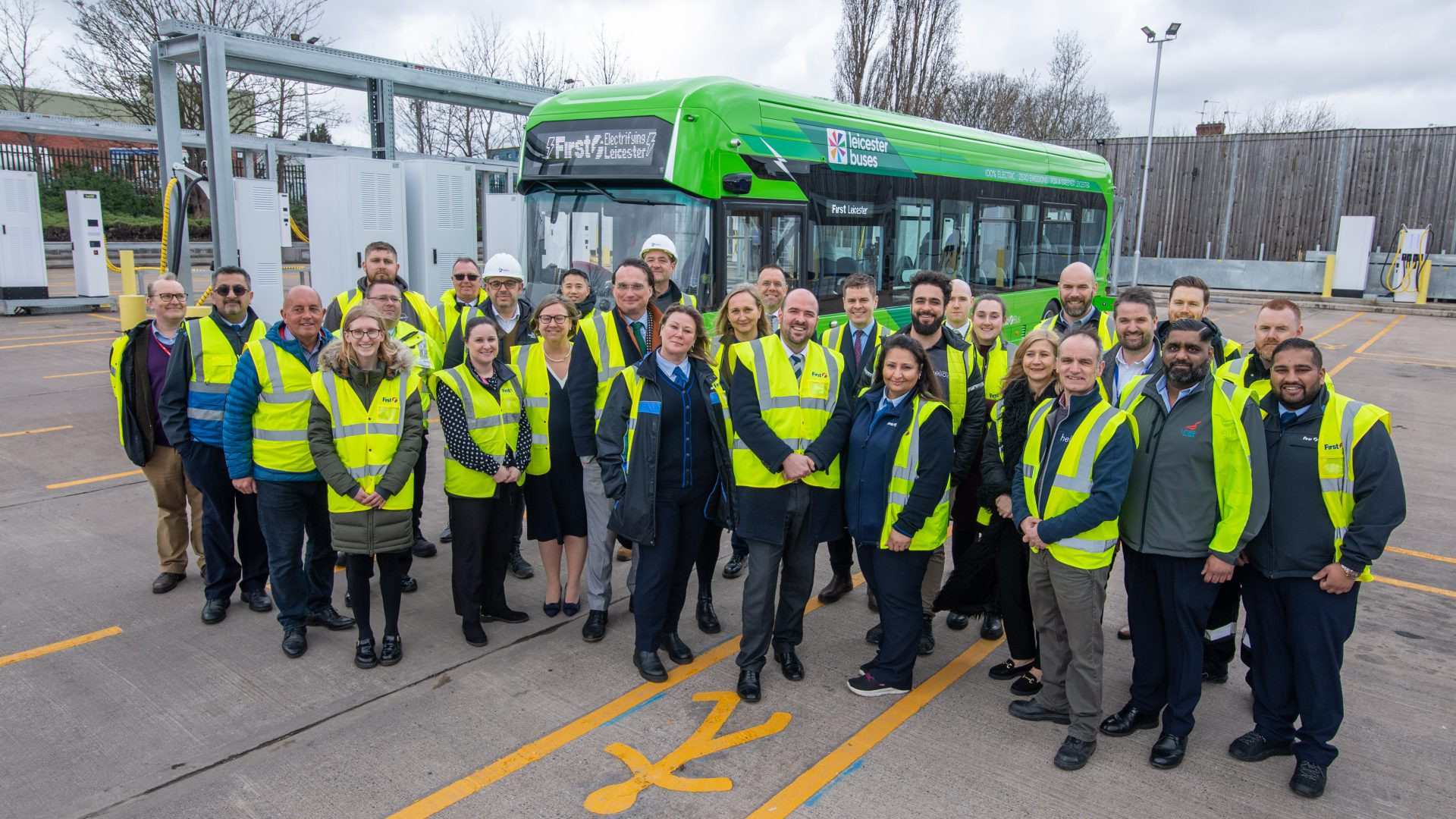
First Bus depot in Leicester
Driver shortages
Another key issue that Bellis touched upon and one plaguing the transport industry as a whole and therefore the deployment of electric buses in the UK, is the chronic driver shortages. Many industry players have implemented driver programmes to attract, train and retain drivers, but no long-term solution has yet been found. This has prompted a growing interest and investments in autonomous vehicles. AAG is not yet involved in any autonomous vehicle driving projects, but opportunities are being looked at as well as the CAVForth autonomous city bus project is being monitored.

UK driver shortage, a serious concern for the industry



